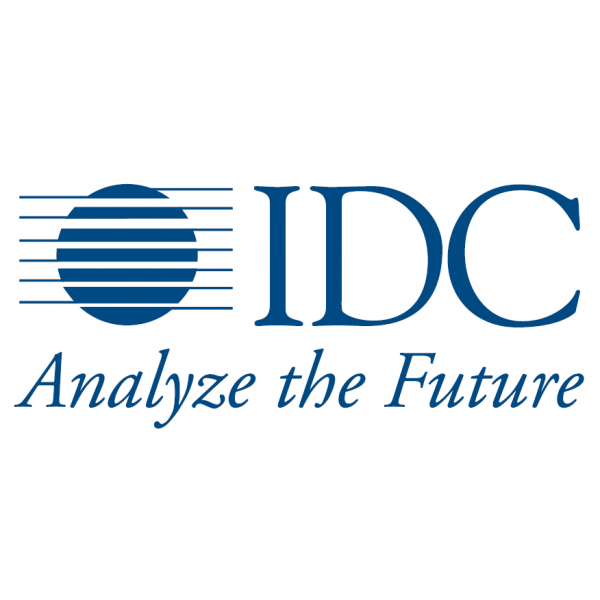European Blockchain Spending Slows Due to COVID-19, but Benefits Expected in Medical Supply Chains and Virus and People Tracking, Says IDC
The impact of the COVID-19 pandemic has been devastating, for both people and the wider economy. While virtually all businesses have been impacted, the effect has been varied (watch our webcast on the impact on the European technology market). According to the results of the International Data Corporation (IDC) European IT Buyer Sentiment Survey, companies expect to cut their IT spending due to the outbreak.
"The pandemic and the subsequent lockdown have had a negative impact on many industries, and we expect a significant slowdown in technology spending due to a pause in investments across companies and prioritization of urgent expenses," said Carla La Croce, IDC European Blockchain Practice co-Lead. "With depressed customer demand, disrupted supply chains, and widespread remote working, many companies are putting on hold innovative projects, including in blockchain, until there is more clarity about the future."
Before the pandemic, IDC's Worldwide Blockchain Spending Guide had forecast that European blockchain spending would be $1.4 billion in 2020, with healthy growth of 58% CAGR to 2023. Now, IDC expects a number of changes in spending in 2020. There will be a slight slowdown in blockchain solutions, with spending down around 8% in 2020 on previous expectations.
Business and IT services will be the most impacted technology segments in 2020 (down 16%), followed by software (down 12%), with blockchain platforms driving the slowdown. If hardware is expected to have the lowest decrease in 2020 (down 8%), external storage will see the biggest fall (down 17%). By industry, IDC has revised down spending for all vertical markets, with a more severe slowdown for personal and consumer services, manufacturing, resource industries, utilities, telecoms, and the whole financial sector. Overall CAGR for 19–23 is expected to be down by more than 3 percentage points compared with pre-COVID-19 forecasts.
Nevertheless, there are some bright spots where blockchain is being used to combat the effects of COVID-19 and aid in the recovery process. These innovative use cases can demonstrate the benefits of blockchain to a wider audience (see How Blockchain Can Help in the COVID-19 Crisis and Recovery).
"While the COVID-19 pandemic presents challenges to the blockchain industry, it can also unlock new opportunities by highlighting current problems across many industries," said Radoslav Dragov, IDC European Blockchain Practice co-Lead. For example, the COVID-19 crisis has caused major disruptions across global supply chains. Long, complex supply chains cause needless opacity that makes it difficult to forecast and plan supply accordingly. "Blockchain provides transparency and breaks down data silos while guaranteeing strong security and a single source of truth," Dragov said. Another problem is how to gather information on the spread of the virus while respecting the privacy of citizens. Blockchain can be used to efficiently gather and collate patient data and monitor patients' movements to guarantee social distancing while protecting their identities.
The political process — specifically elections and voting — is another area that has been disrupted by the pandemic. "The traditional process puts politicians, voters, and all those involved in the related services at risk. This could have been avoided through a secure blockchain voting mobile app," said Mohamed Hefny, program manager, Virtualization, Systems, and Infrastructure Solutions, CEMA. Blockchain technology can alleviate many of the security concerns that have plagued previous e-voting attempts. The biggest hurdle, however, remains the general public's skepticism and mistrust of voting using digital technology. Perhaps the current situation will give new impetus to e-voting initiatives across Europe.
IDC believes there is a lot of potential for the use of blockchain technologies in numerous COVID-impacted scenarios, especially in the supply chain. With the pause in investments across companies and the prioritization of urgent expenses, however, blockchain adoption will slow down.
"Given the benefits that blockchain can have in terms of reliability of the supply chain, transparency, and tracking the path of goods, blockchain investments are expected to see only a temporary slowdown in 2020 and recover soon after the pandemic eases," said La Croce. The recovery will be bolstered by the European blockchain ecosystem, with the biggest players in the market working together with a variety of smaller, innovative companies. The blockchain landscape in Europe remains vast with vendors catering to practically all major industries.
The Worldwide Semiannual Blockchain Spending Guide provides guidance on the expected technology opportunity around the blockchain market across nine regions. Segmented by 32 countries, 19 industries, 27 use cases, and 6 technologies, the guide provides IT vendors with insight into this rapidly growing market and guidance on how the market will develop over the coming years.
(For more information visit: https://www.idc.com/about/press)

